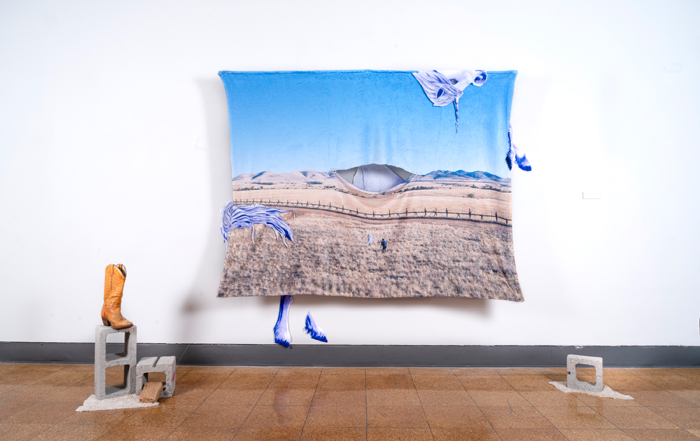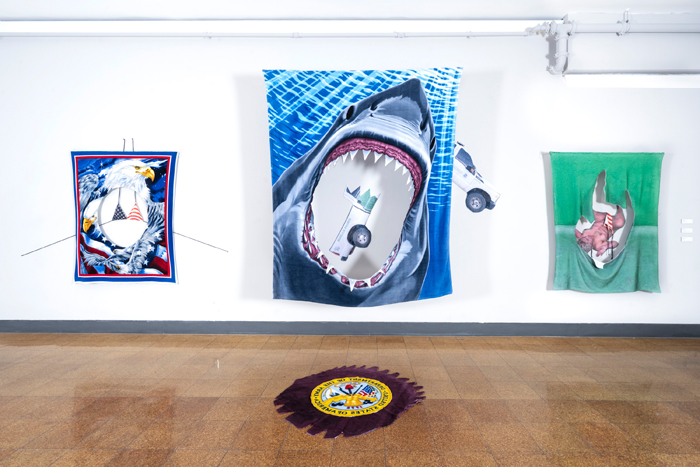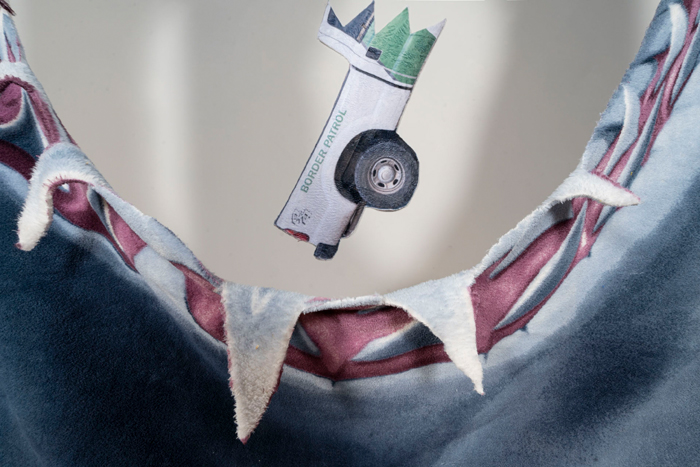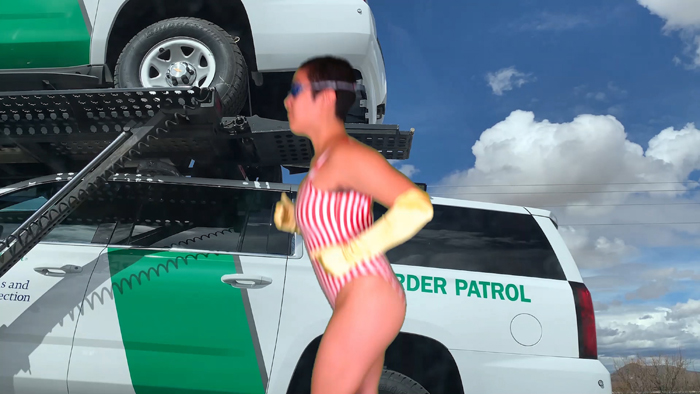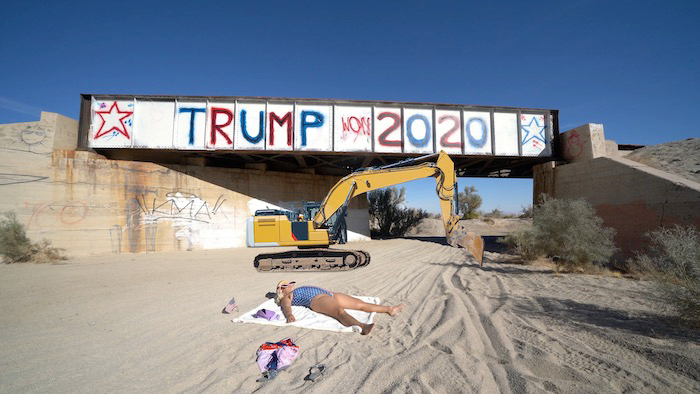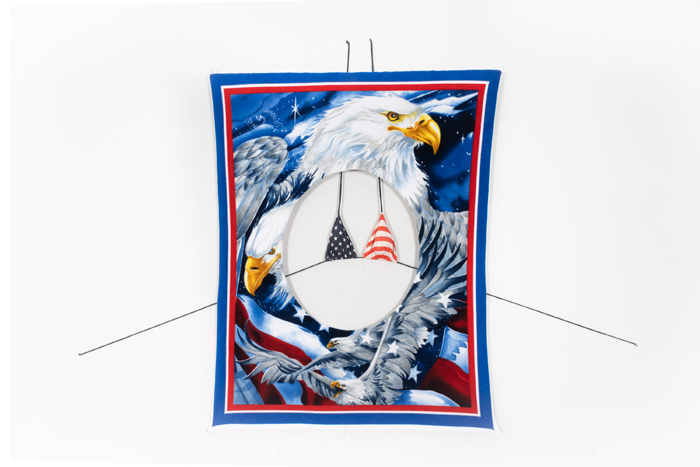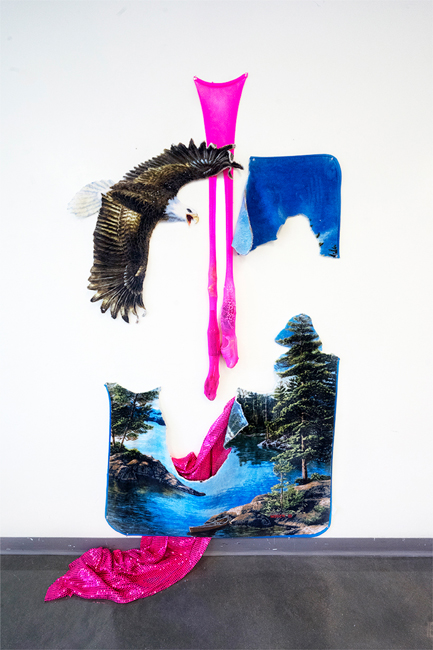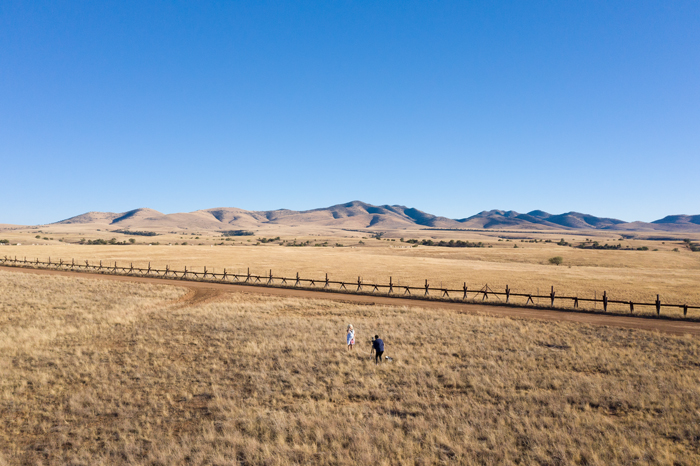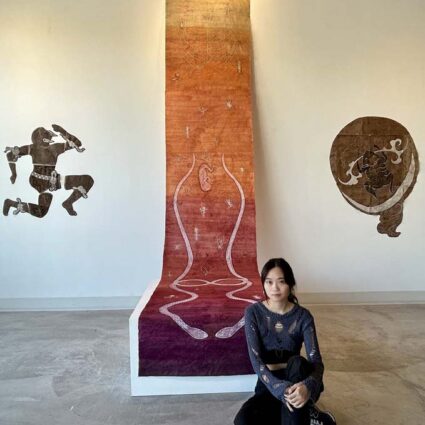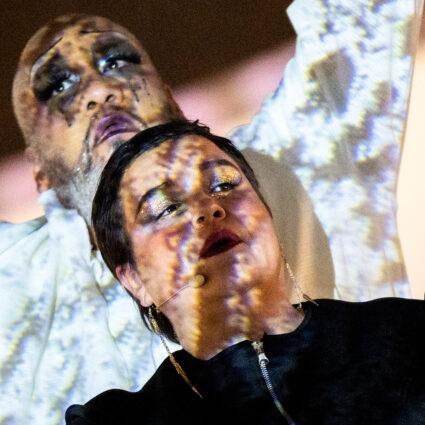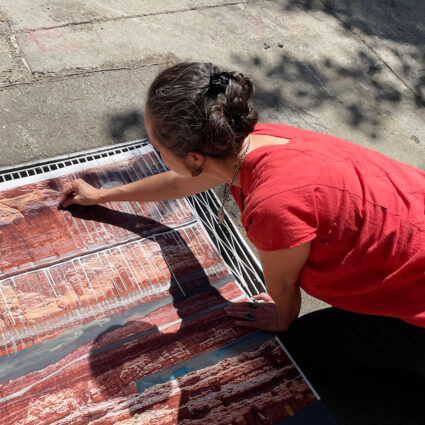
The Austin-based video, photo, and mixed-media artist Bella Maria Varela stretches the fabric of American visual culture to expose the gaps in its subliminal ideologies. As ambitious as she is resourceful, Varela’s work strikes a chord in today’s overcrowded and politically charged digital landscape by creating spaces where hybrid identities can thrive.
Across her work, Varela distorts images that typically connote themes of patriotism and nationalism in order to clarify the empty promises that underlie them. In her video work especially, Varela braves the disputed middle ground between playful irreverence and critical rigor, embracing the tension between the two, resulting in work that is at once amusing and compelling.
“I want people to have fun and be entertained and laugh, but also experience the feeling of, ‘Oh, interesting. I’m not sure if that was supposed to be funny or serious.’ I feel like a lot of life is defined by that feeling, especially when it comes to politics,” she told KTEP in 2021.
Currently a fellow at the University of Texas at Austin, Varela’s most recent work weaves together her personal experiences as the daughter of Guatemalan immigrants born and raised in Washington, D.C., with her own explorations into the underbelly of American history, gender identity, and popular culture. The result is colorful, often anarchic collages of found materials that nod to the legacy of pop, experimental video, and mixed-media installation artists of the 21st century, while expanding that work to consider the experiences of queer, trans, and immigrant individuals in the U.S.
In the mixed-media installation Bikini Baby (2020), for example, Varela suspends an American-flag bikini behind a fleece blanket of an American eagle, the center of which has been cut out. By juxtaposing the valorous depiction of the national bird with a symbol of America’s hyper-sexualized visual culture, Varela captures the ridiculousness of both.
In the video piece @border_becky (2021), Varela captures sound bites from interviews with individuals who make backward arguments, like a woman who claimed, “I wasn’t racial profiling whatsoever, I’m Puerto Rican, like a woman of color; I’m Italian, Greek, Puerto Rican,” to which a newscaster replied, “You keep saying you’re Puerto Rican, does that mean that you can’t be racist because you’re a woman of color? Is that what you’re saying?”
A careful curator of the absurdity of life in the U.S., Varela’s work is altogether hilarious, thought-provoking, and, importantly, razor sharp.
Austin, Texas | baeyahh.com | @baeyahh
